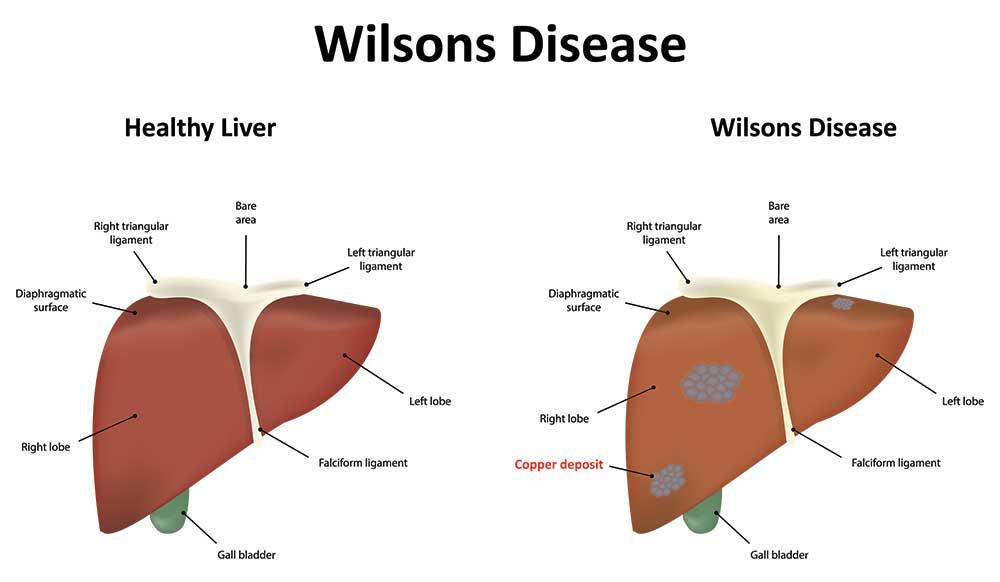
What are the symptoms of Wilson's disease?
Wilson's disease is a genetically inherited condition. So copper will begin to accumulate at birth, but it will take a while for this build up to become apparent. When symptoms begin to show it is often around the ages of 6 to 20.
Symptoms include:
- Jaundice
- Abdominal pain
- Nauseousness
When affecting the brain this can cause:
- Difficulty with moving and speaking
- Headaches
- Tremors in the arms
- Psychological problems such as depression and mood swings
How is Wilson's disease diagnosed?
Wilson's disease can be diagnosed through a number of procedures such as a blood test, a urine test or a liver biopsy.
How is Wilson's disease treated?
Trientine and Penicillamine are used to remove copper from the body. Zinc can also be used to block the gut from absorbing any further copper.
Book A Consultation
If you think you may have Wilson's disease and would like to speak to a gastroenterologist in Surrey, please get in touch to book a consultation with Professor Ala.
Useful Links

